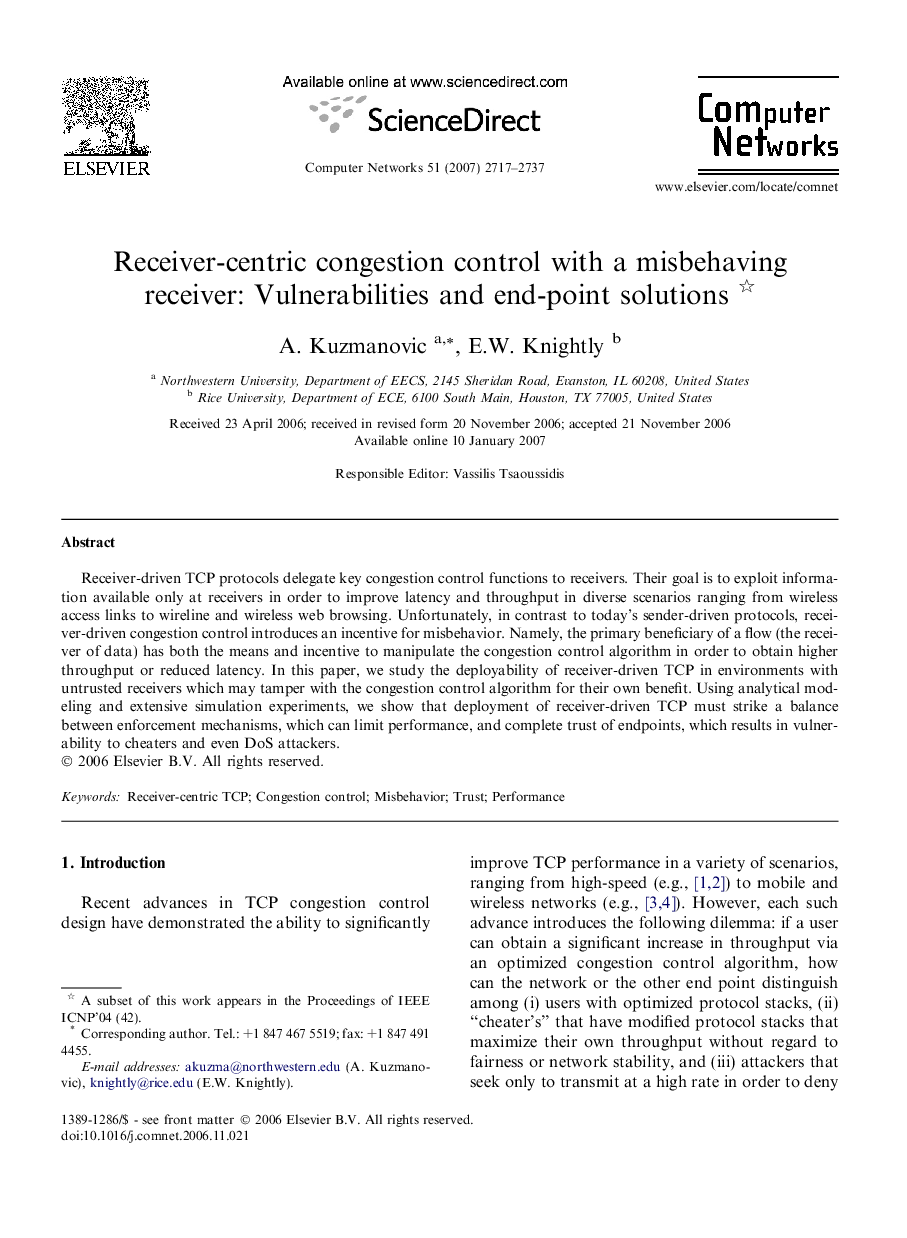| Article ID | Journal | Published Year | Pages | File Type |
|---|---|---|---|---|
| 453257 | Computer Networks | 2007 | 21 Pages |
Receiver-driven TCP protocols delegate key congestion control functions to receivers. Their goal is to exploit information available only at receivers in order to improve latency and throughput in diverse scenarios ranging from wireless access links to wireline and wireless web browsing. Unfortunately, in contrast to today’s sender-driven protocols, receiver-driven congestion control introduces an incentive for misbehavior. Namely, the primary beneficiary of a flow (the receiver of data) has both the means and incentive to manipulate the congestion control algorithm in order to obtain higher throughput or reduced latency. In this paper, we study the deployability of receiver-driven TCP in environments with untrusted receivers which may tamper with the congestion control algorithm for their own benefit. Using analytical modeling and extensive simulation experiments, we show that deployment of receiver-driven TCP must strike a balance between enforcement mechanisms, which can limit performance, and complete trust of endpoints, which results in vulnerability to cheaters and even DoS attackers.
